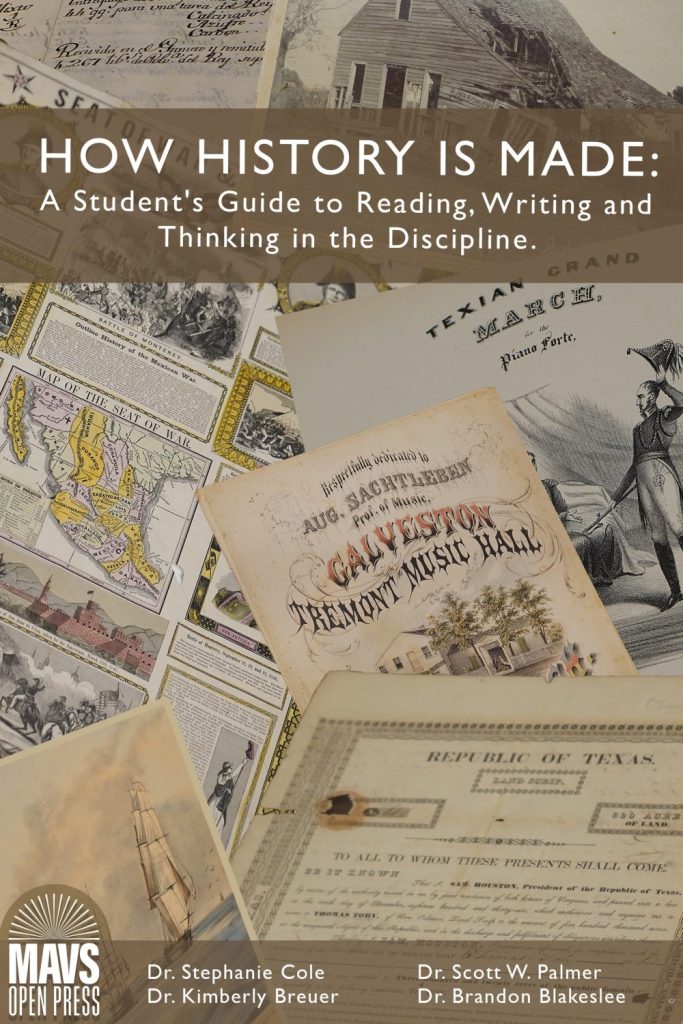How History is Made: A Student’s Guide to Reading, Writing, and Thinking in the Discipline
Editorial: Mavs Open Press
Licencia: Creative Commons (by-nc-sa)
Autor(es): Stephanie Cole, Arlington
Kimberly Breuer, Arlington,
Scott W. Palmer, Arlington
It is likely that advocates of every discipline believe their
subject is unique, but in history we know it to be true.
Every subject, every family–indeed everything–has a
history, which makes most everyone a historian of a sort.
This pervasive familiarity with history (bolstered by
requirements for students in public schools to complete
courses in US history in some states) has a political side
as well. In the last few hundred years, with the rise of
nation states, communicating a shared understanding of
the history of one’s country has become an important
part of building a cohesive identity and establishing
patriotic feelings. Many, if not most, adults legitimately
claim a degree of ownership of the past. They want to
know about the history of their country, their ethnic
group, their state, their family.
While this widespread thirst for stories about the past
creates an audience for historians, it can complicate the
process of writing history. In every era, including our
own, both politicians and historians have debated the
validity of some claims about the past. Some of these
debates emerge from honest differences in interpretation
from limited source material while others emerge from
competing political positions.
Compartir:
Una vez que el usuario haya visto al menos un documento, este fragmento será visible.


